Modern parenting is wild. One minute you’re vowing to raise your kid “old school,” the next you’re negotiating bedtime like you’re at the Geneva Convention and tracking diaper changes on an app with Bluetooth. Raise your hand if you’ve ever whispered, “I just want them to be emotionally secure” while Googling “is it normal for my 4-year-old to reject capitalism?” Yeah—same. Somewhere along the way, parenting turned into a full-time performance of empathy, organic snacks, and philosophical debates with tiny humans who still can’t tie their shoes.
And while some of these trends feel totally normal to us (hello, baby noise-canceling headphones), most of the world is looking at us like we’ve lost our collective minds. In cultures where discipline, structure, and adult authority still reign supreme, many of today’s Western parenting moves land somewhere between bizarre and blasphemous. So if you’ve ever wondered which of your parenting habits might get you side-eyed in 90% of the world, let’s unpack it. Buckle up, because this is where Montessori meets what-the-actual-heck.
1. Gentle Parenting No Matter What

Gentle parenting is all about empathy, understanding, and validating emotions—which, in theory, is lovely. But in practice, it sometimes means explaining for 15 minutes why we don’t throw Legos at Grandma instead of just… saying “stop.” In many cultures, this would be considered extremely soft, if not downright confusing. For example, traditional Korean and Nigerian households tend to emphasize respect and hierarchy over emotional negotiation. In the U.S., gentle parenting has gained traction thanks to a wave of TikTok creators and parenting influencers who swear by peaceful problem-solving. According to The New Yorker, it’s especially popular among millennial and Gen Z parents who were raised by boomers with belts and time-outs.
But here’s the culture clash: telling a Tanzanian villager that you’re “holding space” for your child’s tantrum instead of correcting it? That’s gonna get you some raised eyebrows and possibly a sympathetic prayer. Still, proponents argue it teaches emotional regulation over time. Critics say it teaches kids they can run the show. Either way, your toddler’s feelings are now running point—and that would shock the average global elder into a firm lecture.
2. Negotiating Every Single Request

Modern parents love a good negotiation. One more veggie = one more YouTube short. Five more minutes in the bath = five fewer minutes of bedtime reading. It’s like Shark Tank: Toddler Edition. The idea is to foster independence and communication, but to cultures that emphasize obedience—like many East Asian or Middle Eastern families—it can seem like the kids are running the household.
A recent Harvard Business Review piece highlighted this rise in “collaborative parenting,” noting that many parents are trying to avoid power struggles by offering choices and compromises. Which sounds great, until you’re 20 minutes into haggling over whether broccoli counts as dessert “if it has ranch.” While this can build critical thinking, it often comes at the expense of time, peace, and adult authority. Globally, most parents wouldn’t dream of debating bedtime with a 6-year-old. In fact, they’d probably laugh—and then tuck the kid in without a word. Negotiation-heavy parenting is peak millennial, and to outsiders, it’s both baffling and exhausting.
3. Co-Sleeping with Kids Until They’re 10
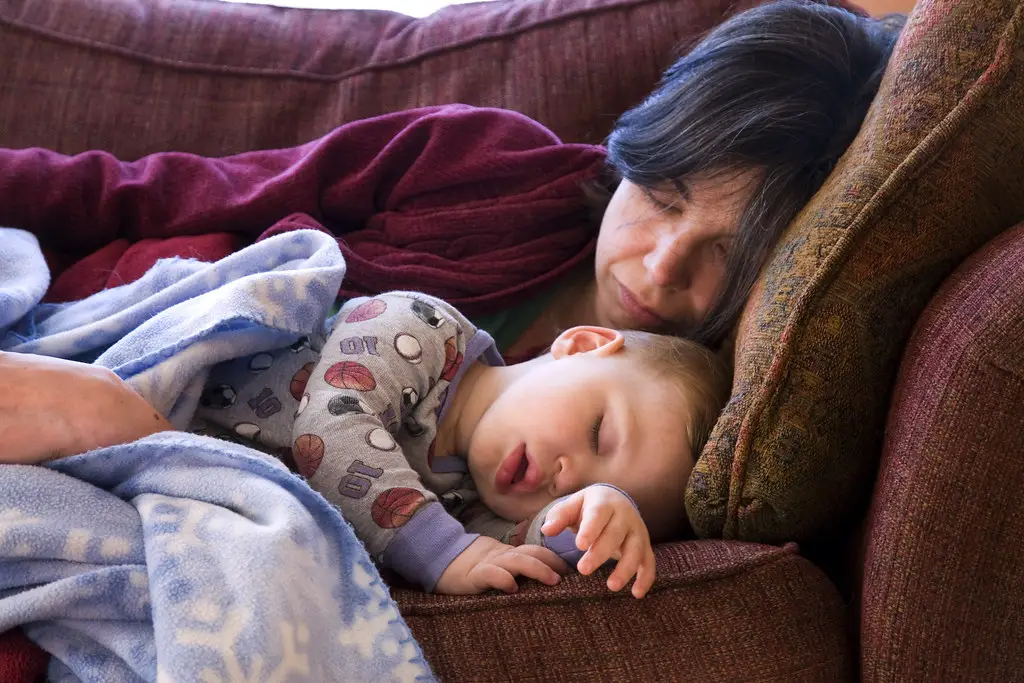
In many non-Western cultures, co-sleeping is totally normal—but there’s usually a cutoff, and it’s not fourth grade. Western millennial parents, however, are reviving co-sleeping like it’s a cozy spiritual journey. Some are even turning their master bedrooms into “family beds” with king-sized mattress mashups to accommodate everyone (dog included). It’s meant to encourage bonding and security, but to most of the world, letting a pre-teen bunk with you every night seems like a massive boundary blur.
Psychology Today notes that while co-sleeping can build attachment, it may also cause long-term sleep issues and dependence in kids. In cultures where independence is prioritized early—think Sweden or parts of Germany—this trend feels backwards, even infantilizing. And in super traditional households, parents’ beds are for parents, not a nightly cuddle puddle with Minecraft commentary. So while it may feel sweet and grounding to some, to many cultures it screams “no privacy, no discipline.” Bonus stressor? You haven’t slept alone in six years.
4. Letting Kids Pick Their Own Meals Every Night

Some parents are basically short-order cooks, taking nightly requests like a server at a diner. Mac and cheese for one kid, dinosaur nuggets for another, and maybe an organic quinoa bite for the dog. Meanwhile, in most cultures, dinner is dinner—and you eat what’s served or go to bed hungry. Giving kids full menu control is a modern parenting trend that sounds empowering but quickly turns chaotic, according to School Nutrition.
This style of “child-led eating” is tied to autonomy and reducing mealtime battles, but it also creates very particular palates. And a whole lot of stress. Ask any traditional Italian nonna or Moroccan mama what they think about making three separate dinners, and you’ll get a withering stare. In cultures where family meals are sacred and communal, this trend feels disrespectful—not to mention wildly impractical. Sure, the kid might eat more when given options, but they’re also learning to expect the world to cater to their cravings. And that lesson? Doesn’t travel well outside American suburbia.
5. “Screen Time” as a Babysitter
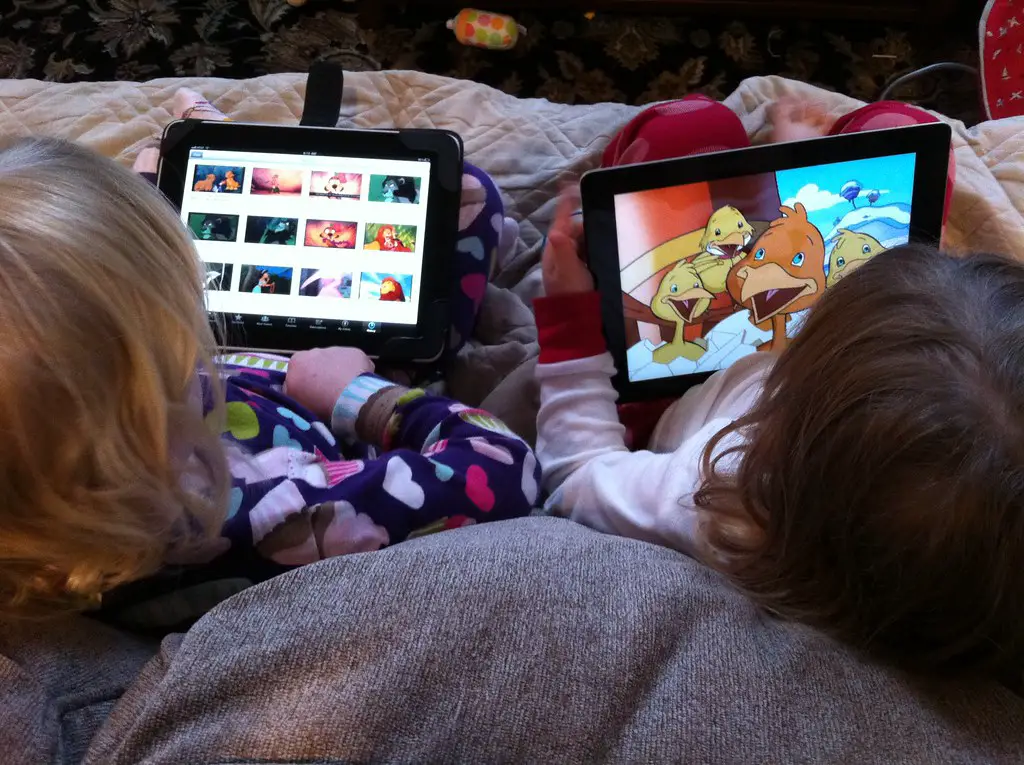
No shade (okay, maybe a little), but screen time is doing a lot of the heavy lifting in modern parenting. Tablets at dinner, phones during grocery trips, Cocomelon during every car ride—it’s become a go-to pacifier. While many parents feel guilty about it, the convenience often outweighs the side-eye. Parents.com explains that in tech-friendly places like Silicon Valley, it’s almost expected that a toddler will know how to swipe an iPad before they can spell “mom.”
But in many cultures, kids are expected to entertain themselves—with sticks, bugs, books, or actual people. Screens aren’t seen as a developmental tool; they’re seen as a crutch, and sometimes, even a danger. In fact, some rural communities view it as negligent or lazy to have your child glued to a device all day. Meanwhile, your kid’s learning how to skip YouTube ads faster than a Zoomer in finals week. It’s efficient, sure. But to most of the world, it’s also kind of mind-blowing that we’d hand over that much influence to a glowing rectangle.
6. Hosting “Yes Days”
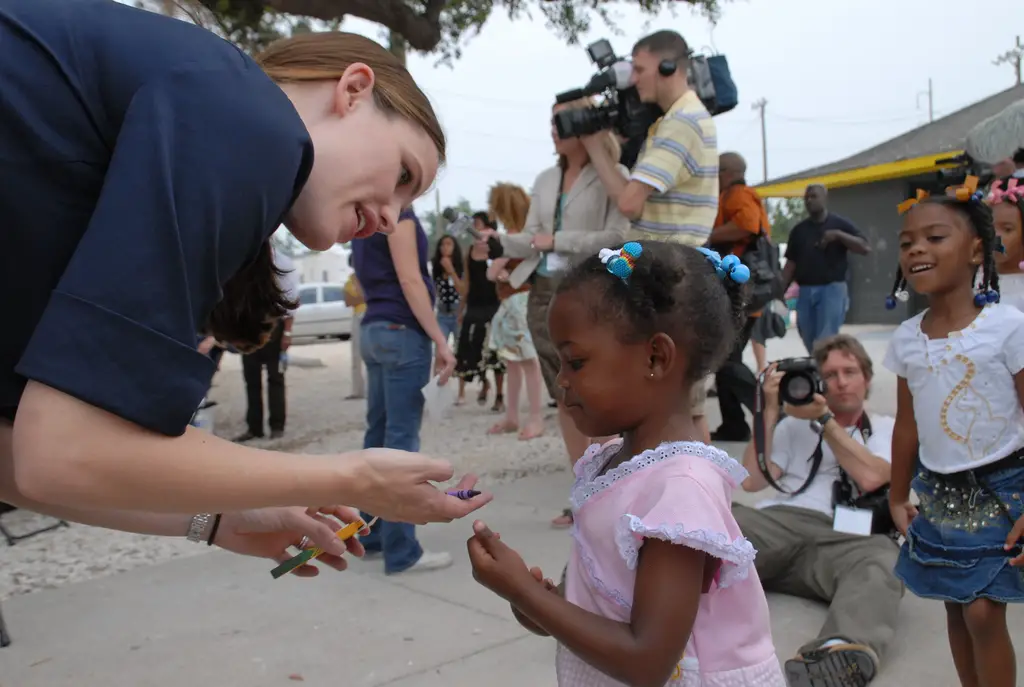
Yes Days are when parents agree to say “yes” to almost everything their kids ask for, within reason. Cute in theory, chaotic in practice. Your kid wants pancakes for lunch, face paint at 3 p.m., and a living room full of bubbles? Yes, yes, and sure—go wild. While it’s meant to give kids agency and build trust, it also throws structure straight out the window.
In cultures where kids are expected to adapt to adult schedules and follow rules, this would seem absolutely bonkers. One day of freedom might be fun, but the come-down the next day? Whew. Cue the meltdowns when the answer goes back to “no.” It can confuse boundaries and make kids expect daily flexibility where none exists. Plus, it often turns into a performative parenting moment for Instagram. Fun memory? Sure. Cultural whiplash for anyone raised in a “because I said so” household? 100%.
7. Letting Kids Curse “to Express Themselves”
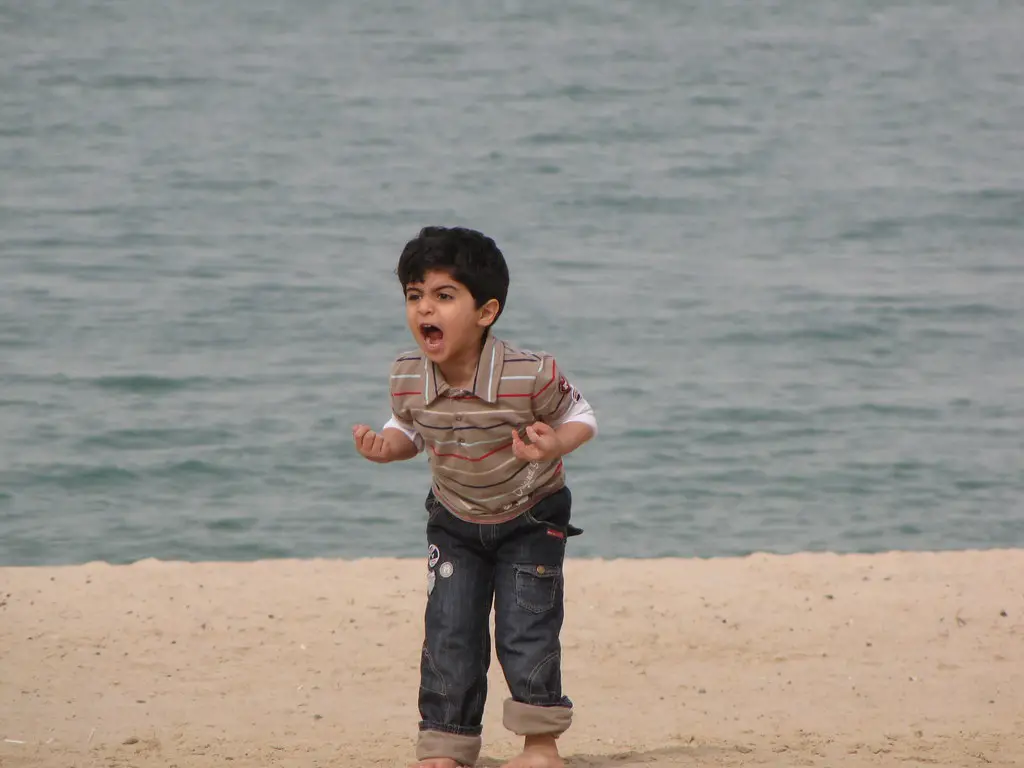
Gone are the days when a kid got their mouth washed out for saying “heck.” Some modern parents now allow—or even encourage—kids to curse in safe environments as a way to “process emotions.” The idea is to destigmatize language and reduce the power of taboo words. In many cultures, though, this feels not just rebellious, but deeply disrespectful.
Language and respect go hand in hand in households that emphasize honor and social order. Even “butt” would be pushing it at grandma’s dinner table. Parents who allow swearing often frame it as a harmless vent or bonding tool. But other adults—teachers, relatives, strangers at the park—might not share that view. It can make social transitions awkward and even alienate the child. Basically, what sounds like emotional freedom in one culture sounds like a parenting fail in another.
8. Giving Toddlers the Power to Choose Their Gender Identity
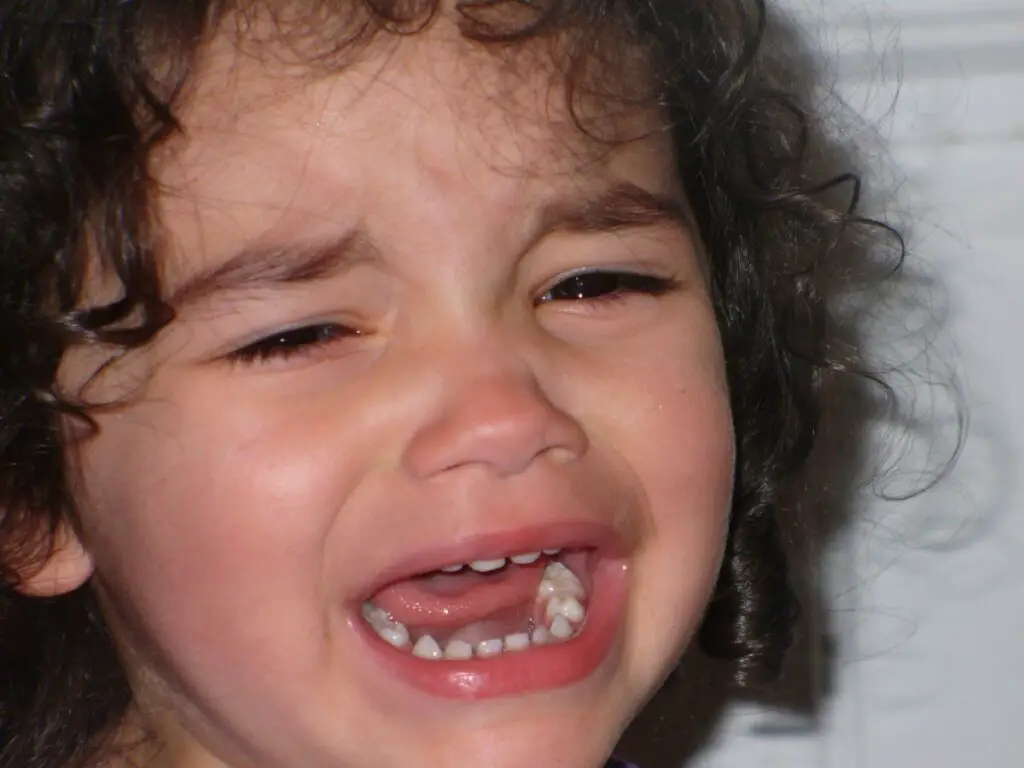
In the name of inclusivity, some modern parents are introducing gender identity conversations as early as preschool. Some even allow toddlers to pick their pronouns and gender expression freely—no questions, no assumptions. To Western progressive circles, this is about respect and autonomy. But in more traditional cultures, gender is often viewed as fixed and tied to social and religious expectations.
Giving a child that much control over such a big concept is not just uncommon—it’s unheard of. While these parents believe in listening and affirming, outsiders might view it as confusing or even irresponsible. It challenges deep-rooted ideas about identity and structure. And whether you agree or not, it’s definitely a conversation starter at international family reunions. It’s a huge shift from the “pink is for girls, blue is for boys” mindset. And for much of the world? It’s not just surprising—it’s shocking.
9. Letting Kids Skip School for “Mental Health Days”
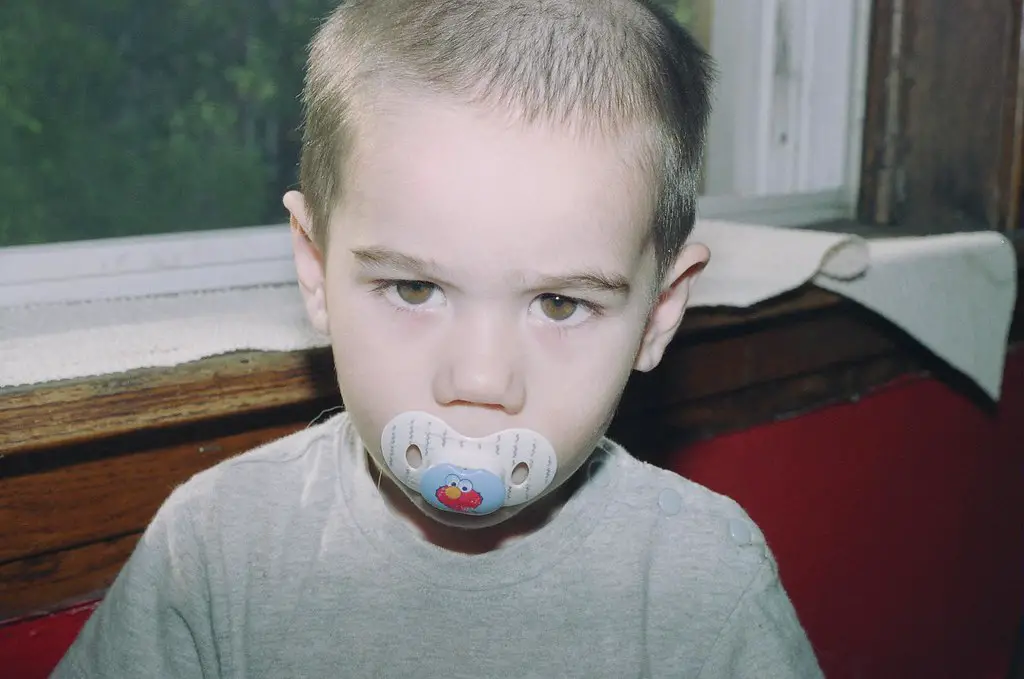
The idea of keeping your kid home from school just because they’re “feeling overwhelmed” would baffle many cultures where education is everything. In places like China, India, or South Korea, school is a top priority—like, skip-your-own-wedding level priority. But here in the West, some parents are treating mental health like physical health, giving their kids regular breaks when life feels a little too much.
These days might include staying home to relax, decompress, or just watch cartoons and nap. While the intention is sweet and supportive, the global reaction would probably be… less so. In many countries, you go to school unless you’re physically immobilized or covered in chickenpox. The concept of self-care for a nine-year-old? Not exactly universal. Supporters argue that it teaches kids to listen to their bodies and avoid burnout. Critics argue it’s a fast track to entitlement and missed deadlines. And in many homes around the world, it’s just not even up for debate.
10. Child-Led Schedules (a.k.a. Bedtime When They’re Tired)
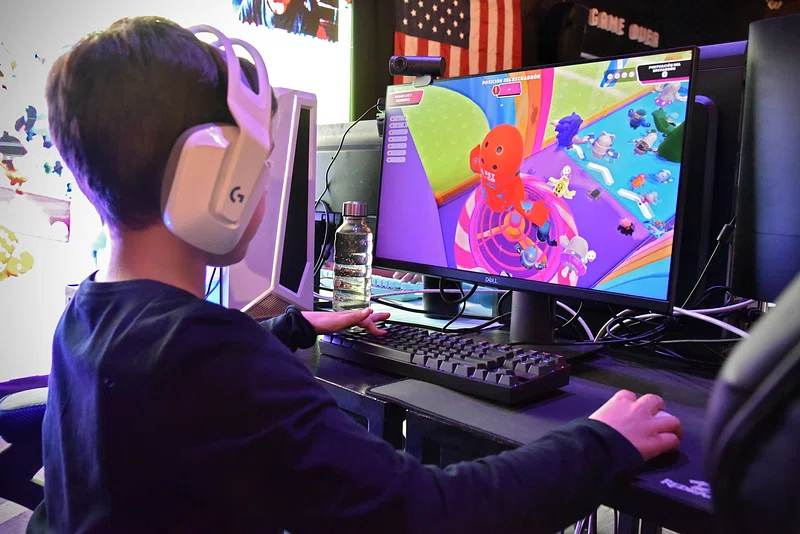
Some parents today are skipping structured routines altogether, choosing to “follow their child’s rhythm” instead. That means letting them go to bed when they feel sleepy, eat when hungry, and basically run on toddler time. The goal is to respect natural rhythms and avoid power struggles. But in most cultures, especially ones that emphasize discipline and family structure, this feels like letting the inmates run the asylum.
Imagine telling a Nigerian auntie that your toddler goes to bed “whenever they’re ready.” You’d get a look that could freeze lava. Not only does it upend household consistency, but it often leads to exhausted kids (and even more exhausted parents). Plus, it makes any kind of travel, daycare, or social life wildly unpredictable. For most of the world, structure isn’t optional—it’s survival.
11. Encouraging Kids to “Speak Their Truth” to Authority Figures

Millennial and Gen Z parents are big on teaching kids to advocate for themselves, even with adults. That means letting them speak up to teachers, doctors, or even grandparents when something feels unfair or uncomfortable. While empowerment is the goal, in many cultures, this looks like flat-out disrespect. Deference to elders or professionals is non-negotiable in huge parts of the world.
The idea of a child correcting an adult—or questioning their intent—would be seen as insubordinate at best and shameful at worst. In more collectivist societies, harmony and humility matter more than individual expression. So when a kid says “I don’t like your tone” to a teacher? That’s not assertiveness—it’s a scandal. Supporters say it fosters confidence and emotional intelligence. But globally, the jury’s still very much out. And it might come with more awkward family dinners than you bargained for.
12. Using Apps to Monitor a Baby’s Every Move

From sleep cycles to poop frequency, today’s parents can track everything about their baby using high-tech gadgets and apps. There are apps for feedings, apps for cries, even apps that suggest why your baby might be fussy at 2:14 p.m. It’s part of the new hyper-quantified parenting wave—because data equals control, right?
But in most cultures, parenting is more intuitive, more communal, and way less neurotic. You rely on elders, not Bluetooth. Grandmothers around the world are side-eyeing this one hard, like, “You need a what to tell you when to feed your child?” The constant monitoring can increase anxiety instead of reducing it. And it sends the message that without tech, you can’t trust your own instincts. While some parents swear by the insights, others admit it makes them feel like they’re raising a Tamagotchi. One that needs therapy and a software update.
